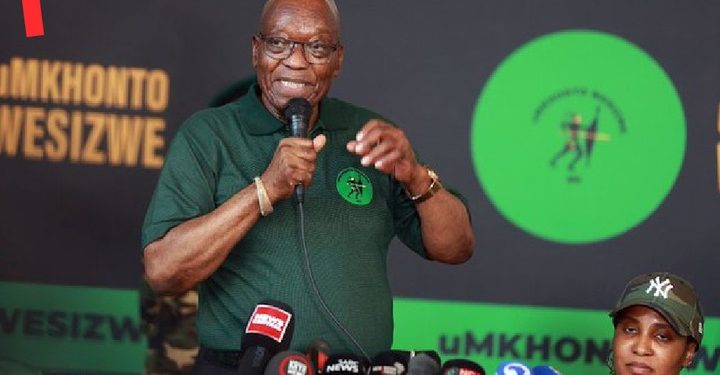Religious leaders in KwaZulu-Natal have recently sent a stern message to the Electoral Commission of South Africa expressing their dissatisfaction with the current political landscape. In a surprising turn of events good they threatened to shut the country for good and reject the outcomes of the upcoming elections if the IEC does not grant the MK party a two-thirds majority.
The MK party known for its roots in the struggle against apartheid has gained traction in recent years. However the demand for a two-thirds majority has raised eyebrows and sparked concerns about the potential implications for democratic processes.
The religious leaders representing various faiths in the region conveyed their message through a joint statement. They emphasized the significance of the MK party historical role and argued that a two-thirds majority is essential for the party to effectively address pressing issues facing the nation. Critics however view this as an attempt to exert undue influence on the electoral process.
The threat to shut the country for good adds a layer of complexity to the situation. It raises questions about the potential impact on the stability of the nation and the well-being of its citizens. Such drastic measures if implemented could have severe consequences for the economy social cohesion and international relations.
The IEC responsible for ensuring free and fair elections faces a challenging situation. Balancing the demands of political parties with the principles of democracy is a delicate task. The threat from religious leaders adds a unique dimension as their involvement in political matters is traditionally seen as separate from electoral processes.
As the nation approaches the upcoming elections there is growing uncertainty about the outcome and the stability of the political environment. The MK party demand for a two-thirds majority coupled with the threat from religious leaders highlights the intricate challenges facing South Africa democracy.
Civil society and political analysts are closely monitoring the developments calling for a transparent and unbiased electoral process. The IEC must navigate these turbulent waters to ensure that the democratic principles that South Africa fought so hard for are upheld.
In conclusion, the recent threat from religious leaders in KwaZulu-Natal adds a layer of complexity to the political landscape ahead of the upcoming elections. The demand for a two-thirds majority for the MK party and the ominous warning to shut down the country create a tense atmosphere raising concerns about the integrity of the electoral process and the stability of the nation. South Africa faces a critical juncture requiring careful navigation to safeguard its democratic values.






















